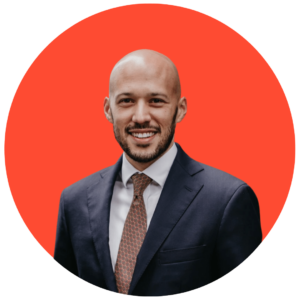I was fortunate to enjoy a few drinks and spend some time with the RASK community last Friday night in Melbourne. Chatting with a bunch of smart, enthusiastic young people after the formal part of the evening, I was struck by how many didn’t really have a clear understanding of how, financially, to get from where they are, to where they want to be – which from what I gathered, is pretty damn wealthy. Sure, they knew about saving and compounding, but that’s not how my high-net-worth clients ‘made it’ and it’s certainly not how I’m trying to grow my wealth…
This got me thinking (a rare occurrence) what is my basic philosophy for financial life/making money?
I’ll preface this with a warning: this is just my opinion, I’m not an expert on this topic.
#1 Develop some human capital (a long lever)
Get trained, skilled, proficient, and efficient in something of economic value. Ideally, identify some unique personal attributes you have and try and put yourself in a position where thinking/behaving or working in that way gives you an asymmetrically large and positive economic reward for those thoughts/behaviour.
An example, if you like talking to people and are quite confident and extroverted, perhaps get into sales. How? Well, get a degree or other relevant certification and then go and learn from the best people who will hire you. Start with anyone who will hire you and work your way up. Ask them where the shortcuts are, what mistakes to avoid, and the things to spend time, money, and effort on. Listen to them, do what you’re told. Steal like an Artist.
#2 Highest and best use (stick the lever in the right spot)
All capital, especially human capital, should be deployed to its highest and best use. In our sales example, you can choose to sell vacuums door-to-door, or you can choose to sell Sydney harbour-front real estate. Find where you can best leverage your skills, knowledge, certification, personality and good looks so to extract maximum economic value.
In real life, this often means taking a step back to go forward. Quitting a job on $200k in vacuums, to take a less prestigious/junior job on $100k in real estate, because the upside is better. It might mean forgoing a salary altogether and going on ‘commission only’ or some other version of that where you only eat what you kill, but you can kill (and subsequently, eat) as much as you like.
And yes, I get it – this might not be possible for everyone. Remember, I’m not an expert and I’m sure this isn’t the only way to skin the cat, its just way I know.
#3 Work hard (push hard on your lever)
Once you’ve found the long lever, and you’ve stuck it in the right spot, push on that f*cking stick as hard as you possibly can for as long as you possibly can. If you keep your head out of your a*se and your ego at least partially in check, this work will result in a ‘surplus’ – more money in your pocket every month than you need to live a comfortable existence. I always say I’ve never ‘saved’ a dollar in my life, which isn’t exactly true, but I think everyone who is half-sensible spends about the same (we all eat, drink, wear clothes, have social events we want to go to etc.), people with surplus money just earn more.
#4 Risk = Return
Having surplus, and the ability to add to it (generally, at faster and faster rates each year of your career – as your salary grows) is in my view, financial independence. You have skills other people need and as a result, should you ever run out of money, you can get more. There are countless examples of fortunes wasted by wealthy people with no skills. Wealth/financial freedom is not thrift compounded; its skills, networks and experience compounded… the surplus money is just a by-product.
Aside from making you feeling great, the ability to create surplus cash gives you the freedom to invest with confidence and courage. Which, if you translate it to finance-nerdism, means you can take larger relative bets on higher risk/higher return investments. In practice, it means diversifying away from your human capital and investing in other people’s human capital, such that you can fail forward, learning from your mistakes while you take two steps forward, and one step back.
While the more surplus to invest, the more wealth you will build, I’d suggest you divert some excess to improving your lifestyle, helping the less fortunate, buying your nephew a musical instrument that annoys your brother/his dad as payback for your childhood traumas… whatever floats your boat really. You could get hit by a bus tomorrow, invest in experiences, relationships, and revenge (joking!) too.
#5 Time
Then apply lots of patience, persistence, resilience, and consistency. Life is long, take your time. In my experience, few people are lucky and get rich quick. Safer to assume you aren’t lucky and go with the tried and tested strategy above (or something else you think will work.) Most successful people I know are business owners, who took risk, and worked hard doing something they kind of enjoyed. These are the ‘gritty’ types of people I admire.
If you’ve made it this far, thanks for indulging me and if you’ve got a few thoughts on this topic, I’d love to hear them.



